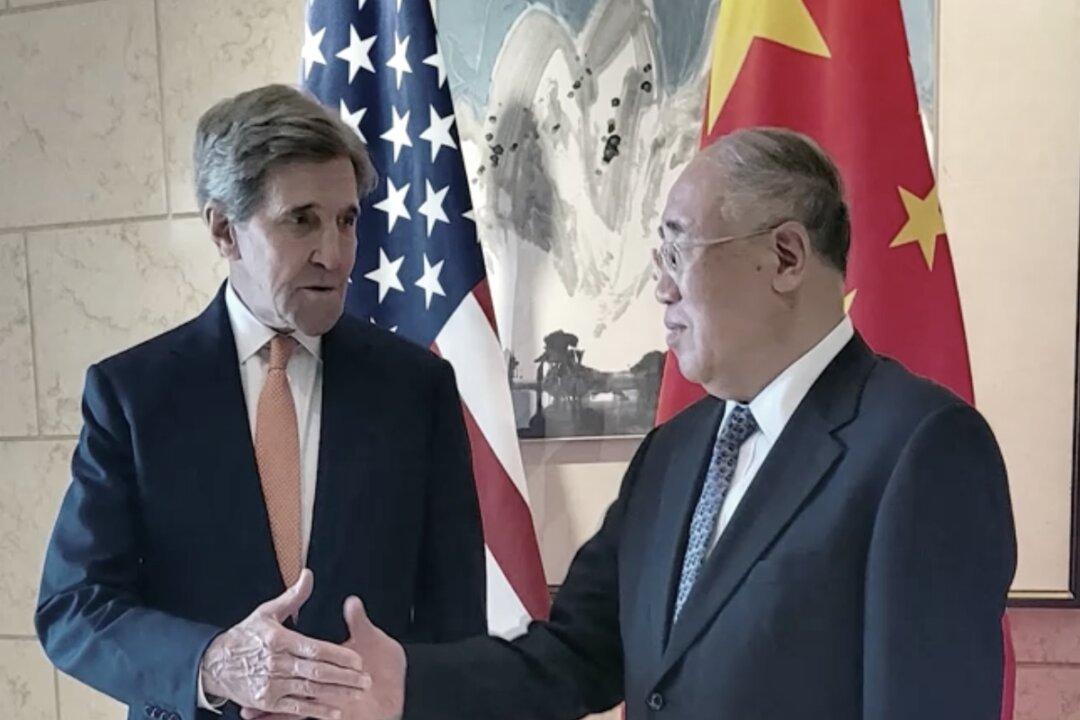Ahead of a face-to-face meeting between the leaders of China and the United States, U.S. Climate Envoy John Kerry and his Chinese counterpart, Xie Zhenhua, issued a statement stressing the two countries’ commitment to the Paris Agreement and other climate-related policies—but some specifics are lacking.
The Nov. 14 announcement was made just half a month ahead of the next United Nations climate conference, COP28. The meeting will take place in Dubai between Nov. 30 and Dec. 12. China and the United States are the No. 1 and No. 2 sources of greenhouse gas emissions, making them critical players in any international climate negotiations.





